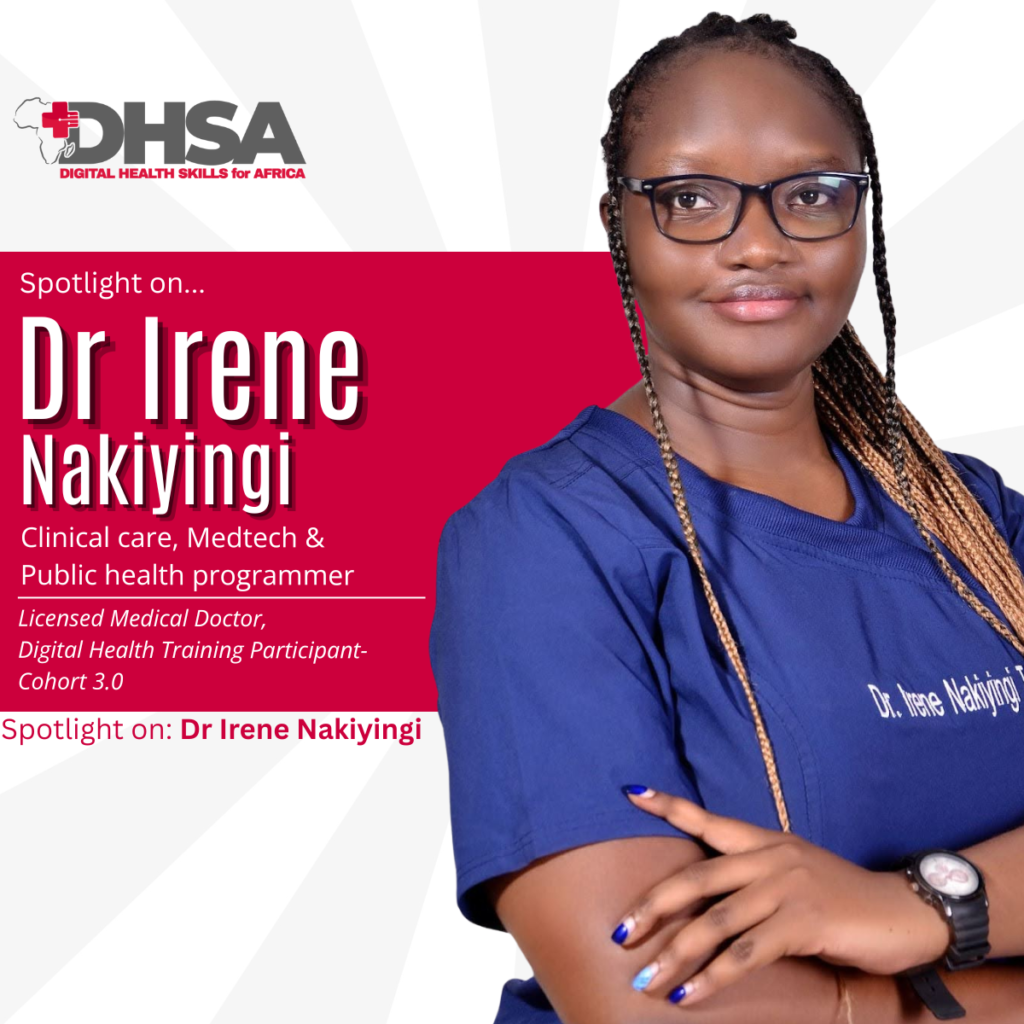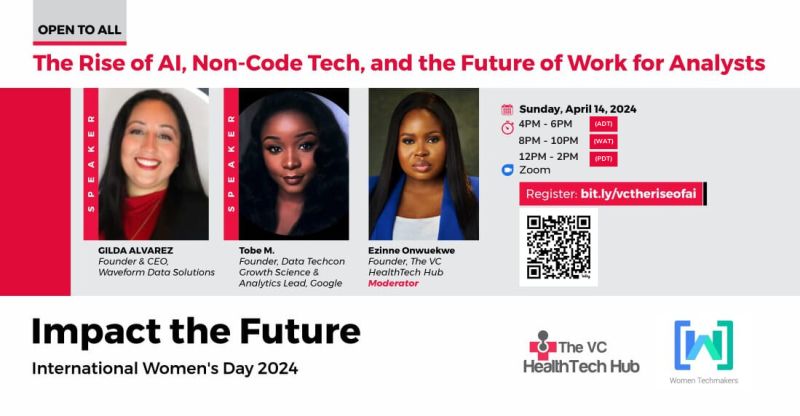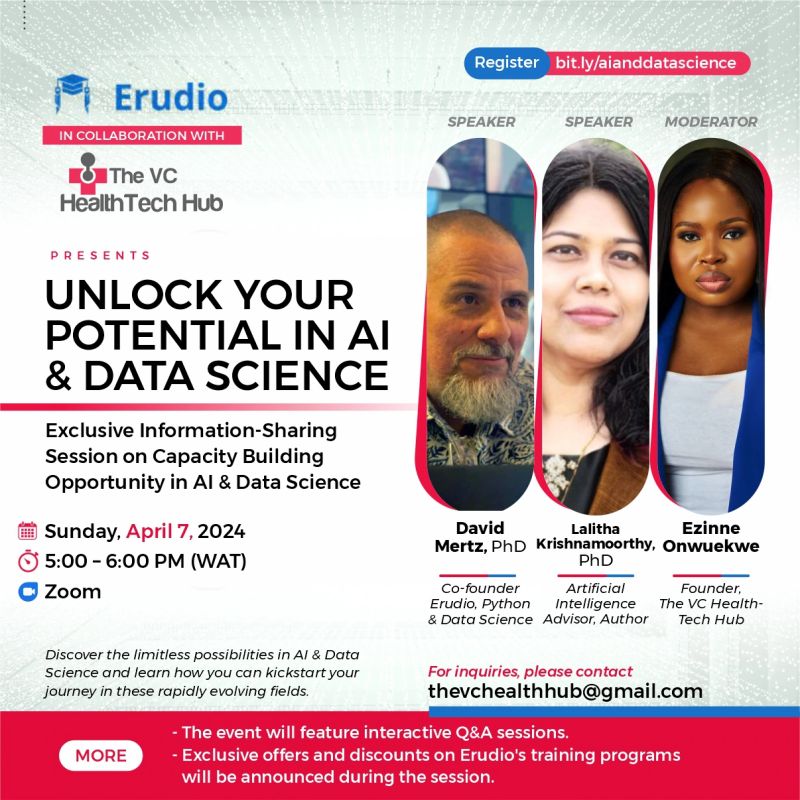
Meet Dr. Irene Nakiyingi, a licensed medical doctor and aspiring digital health specialist dedicated to transforming healthcare delivery in Africa through technology and data-driven solutions. With a rich background spanning clinical care, medtech, and public health programming, she combines frontline medical expertise with innovative digital strategies to tackle healthcare challenges at scale.
Her experience includes supporting digital health initiatives through research, virtual health consulting, digital content development, and community-led health programs. Currently undergoing training with Digital Health Skills for Africa (DHSA), Dr. Irene is expanding her expertise in Electronic Medical Records (EMRs), data dashboards, DHIS2, and Monitoring & Evaluation (M&E) frameworks. She is also pursuing a BSc in Data Science with a focus on digital health analytics, further positioning herself at the forefront of technology-enabled healthcare transformation.
Passionate about accessible, patient-centred care, she has collaborated with impactful organisations such as Wekume, ZabiReproHealth, and Digital Health Africa. Her mission is clear — to design and scale digital solutions that advance health equity in Uganda and across the continent.
Read on as Dr. Irene Nakiyingi shares her inspiring career journey, experiences in digital health, and vision for leveraging technology to improve healthcare outcomes in Africa.
1. Please tell us a bit about yourself and your background in healthcare or digital health.
My name is Dr. Irene Nakiyingi, a licensed medical doctor from Uganda with a strong interest in healthcare, technology and creative writing. I have experience in clinical care, public health research, and community-based programs. Over time, I’ve expanded into data science and digital health to complement my medical background and contribute to evidence-based health innovations leveraging digital tools to improve health systems.
2. What are your perspectives on the state of Digital Health in your country?
Digital health in Uganda is gaining traction albeit slowly, particularly in areas like electronic medical records, mobile health, and disease surveillance. These are mostly spearheaded by government facilities but private facilities are also coming on board. However, challenges like limited infrastructure, inconsistent internet connectivity, fragmented systems, and lack of policy enforcement still hinder progress showing a need for coordinated efforts, strategic investment, and digital literacy across all levels of the health system.
3. What motivated you to apply for the DHSA Digital Health training Cohort 3.0?
I saw DHSA as a valuable opportunity to formalize my knowledge in digital health. Knowing about something but having no proof of said knowledge may not carry me far. I was drawn to the practical, African centered approach, giving me an opportunity to understand ideas and concepts in the local context. I wanted to understand how to design, implement, and scale digital solutions in resource-limited settings, particularly within my home country and similar contexts.
4. How has the cohort-based approach (networking, mentorship, and peer learning) shaped your learning experience?
It’s been transformative. Learning alongside professionals from diverse backgrounds created a rich space for me to glimpse into the workings of minds from similar environments as mine. I haven’t fully utilised the program to my best advantage but that is on me as everyone is very open and friendly.
5. Can you share your take on Digital Health capacity building in Africa?
Capacity building is the backbone of digital transformation in healthcare. Africa has the talent and potential, but there’s a need to train more professionals not just in tech, of which we are still heavily lagging behind, but in leadership, policy, and implementation. Programs like DHSA are crucial because they equip people with practical tools and help create a continent-wide network of change agents with a similar goal.
6. Can you share a specific skill or knowledge area you’ve gained from the training that you’ve already started applying in your work?
The use of data visualization and dashboard design specifically for health data analysis. While I’ve had experience with this in other fields, there are important differences in how we use them to present data and insights for application in healthcare. With what has been shared during the training, I’m creating clearer, more actionable insights from data, helping us make quicker decisions, something I believe is central to improving health outcomes.
7. How do you see digital health shaping your career trajectory, and what are your next steps after completing the training?
Digital health is becoming a central pillar of my career. I see myself working at the intersection of health, technology, and policy, whether through research, health informatics, or program implementation. After this training, I plan to deepen my technical skills and work my way into a role that works on digital health strategies to improve access, quality, and equity in healthcare.
8. If you could implement one digital health solution in your community or workplace today, what would it be and why?
I would implement an integrated electronic health records (EHR) system that connects facilities at various levels of care and inter departmentally covering out and in patient, pharmacy and imaging. This would be a huge undertaking because not only would we have to reach even the smallest and most remote of facilities, but would have to equip them sufficiently to at least be able to do basic functions.
Currently, patient information is scattered and often lost between visits, be it in the same facility or across the different facilities as we have a habit of medical tourism. A centralized, accessible EHR would ensure continuity of care, reduce diagnostic errors or repeats, and improve financial expenses for the communities we serve.
9. What advice would you give to healthcare professionals and/or students considering a career in digital health?
Digital health is not just for tech experts. If you’re a healthcare worker, your experience is invaluable in designing relevant and realistic solutions, no matter the magnitude of your input. The journey is still unclear and there will be a lot of days when you might wonder if it is all worth it. Start by learning the basics and work your way up. Be curious, open to collaboration, and always anchor your innovations in community needs, not the most complicated innovation you can think of.
10. Could you describe the DHSA Digital Health training in three words?
Educative, Practical, Inspiring.


